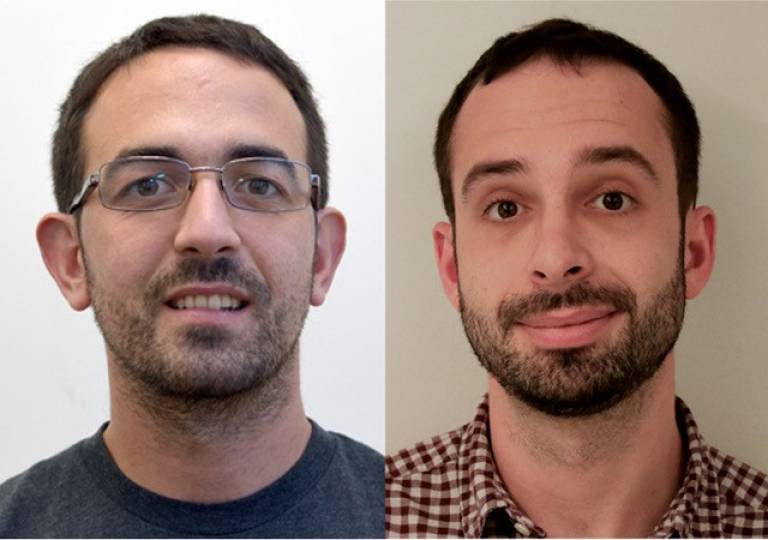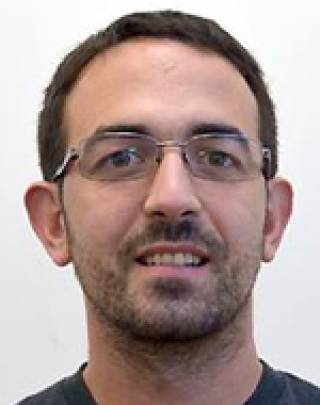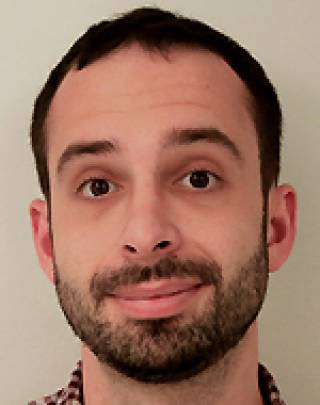Cosmoparticle Initiative members appointed to Proleptic Lectureships
5 September 2018
Dr Andreu Font-Ribera and Dr Ingo Waldmann, core members of the Cosmoparticle Initiative, are appointed to proleptic Lectureships.

The Cosmoparticle Initiative congratulates two of its Core members, Dr Andreu Font-Ribera and Dr Ingo Waldmann, on their appointments to Proleptic Lectureships in the Department of Physics and Astronomy at UCL.

Andreu Font-Ribera joined UCL in October 2016 as an STFC Ernest Rutherford Research Fellow in the UCL Astrophysics Group. He was a founding Core member of the Cosmoparticle Initiative.
What do you think is different or special about the Cosmoparticle Initiative? How would you describe the research opportunities it offers?
Many universities and research institutions have astronomy separated from particle physics, but there are many topics that benefit from the interaction of these branches of physics. For instance, I'm working with a student in the effect of massive neutrinos (particle physics) in the distribution of mass in the Universe (cosmology).
Where did you work/study/research previously?
I studied in the Institut de Ciencies de l’Espai, Barcelona, which is where I'm from. I did my PhD there as well, before moving to the University of Zurich in 2011, and the Lawrence Berkeley National Laboratory in 2013.
What were your research interests before joining UCL?
Studying the expansion of the Universe using large maps of galaxies and quasars.
What are you currently working on now in the Cosmoparticle Hub?
The topics are: using hydro-dynamical simulations to learn how the gas between galaxies is distributed, and what this tells us about cosmology, using a phenomenon known as the Lyman alpha forest; and work on the design of the Dark Energy Spectroscopic Instrument (DESI),that will start taking large amounts of data in 2019. I'm chairing one of the working groups, and making sure that we are ready to start!
These projects will keep me and my students busy for the next 3-5 years!
What further areas or research programmes are interested in?
I'd like to start a new topic with other researchers here at UCL. May be related to gravitational waves? Weak lensing? Artificial intelligence? And in 2019 I will start teaching at an undergraduate level, which is very exciting!
Anything else you’d like to add?
I was assigned responsibility for the green plants in the Hub, and against all odds (almost) all of them survived the first half a year!

Ingo Waldmann began his career at UCL as an undergraduate in Astrophysics & Planetary Sciences. Building on his research interests, he was appointed as Senior Research Fellow in the UCL Astrophysics Group in 2014. He became a Core member of the Cosmoparticle Initiative in 2017.
I’m very unusual in that I had my entire career to date at UCL. Somehow I got stuck here but then it’s not a bad place to be stuck either!
What do you think is different or special about the Cosmoparticle Initiative? How would you describe the research opportunities it offers?
The interdisciplinary nature of the Cosmoparticle Hub is very forward thinking and provides a platform for otherwise disconnected areas of astrophysics to interact and collaborate. Even if it’s as remote as exoplanets…
What are your research interests?
My main research interest is in data analysis and atmospheric modelling of exoplanet atmospheres, using space and ground based observatories
What are you currently working on now in the Cosmoparticle Hub?
I am collaborating with people at the Cosmoparticle Hub on data analysis and machine learning approaches. In particular I work with Chamkaur Ghag and PhD student Omar Jahangir on the detection of WIMPS using SuperLUX and neural networks. In the future I will be involved in big-data projects related to LSST as well.
What further areas or research programmes are you working on now?
I’m not a cosmologist at all and my understanding of cosmology is relatively basic. My main job is characterising the atmospheres of extrasolar planets and working on the design of the ESA-M4 mission Ariel which is led by UCL. At the beginning of this year, I have started my ERC grant which focuses on the application of machine learning and deep learning to exoplanets (but also astronomy as a broader subject). It is on the statistics and data analysis side where I fit into the Cosmoparticle Hub. Together with Benjamin Joachimi, we are running an interdisciplinary journal club (PhysAstroData) focusing on the idea exchange in data analysis between (astro)physics disciplines.
What are you plans for the next few years?
Gosh, there are a lot of plans: my ERC grant runs for the next five years, which involves building a team dedicated to machine learning and deep learning. I have a significant involvement in the Ariel mission as data analysis lead and I’m a coordinator of the new UCL Exoplanet Space Data Centre located at the Harwell Science Campus. That, along with teaching, should keep me busy!
Within the Cosmoparticle Hub, I would very much like to build more interdisciplinary collaboration with cosmologists and statisticians at UCL. I feel like we can learn a lot from each other.
 Close
Close

